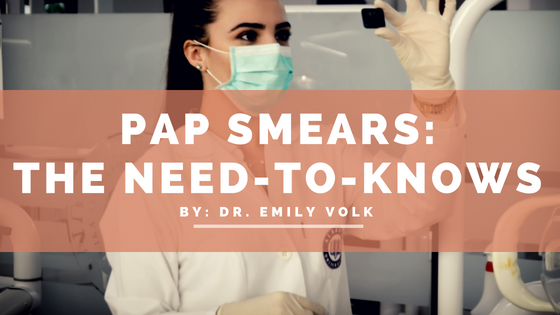Getting your first pap smear can seem a bit daunting and intimidating. We’ve all heard the horror stories: cold clamps, untimely menstruation, long waits for an appointment…but let’s take a step back first so you can ensure you’re doing the prep you need for your pap smears.
So, what happens?
Let’s begin with keeping in mind that for a lot of folks, the term sounds a bit more daunting than the actual procedure. Essentially, by taking a sample of cells from the cervix, doctors gather an abundance of information about your reproductive health. This is basically exactly what happens during a pap smear; the doctor takes a cell sample from the cervix and then your end of the procedure is over, it just needs to be sent to the lab for testing. It is also traditional for doctors to take cell samples for testing an abundance of other conditions and diseases during a pap smear, as gynecologist appointments are not typically frequent, especially the older the patient gets. Most importantly to note, however, is that the procedure is quick and easy, just as long as you come prepared.
What do I need?
Just yourself will do! One thing to keep in mind, however, is that you’ll want to do your best to schedule your appointment for a day you are not menstruating, as it is much more difficult for doctors to gather the information they need from a pap smear when you are menstruating. You will also want to ensure you attend your appointment in a relaxed state, as any tensing of the vaginal muscles can also make your pap smear difficult to gather information from.
Why do I need one?
Typically, pap smears are given to people 21 and older once every three years and then slightly less frequently after age 30. Once you reach your mid 60s, you can ask your doctor if you still need one. Pap smears are used solely for checking for cervical cancer or any abnormalities in the cervical cells. This makes it a vital procedure for younger audiences, as there is a higher risk for abnormalities at a younger age. By keeping your doctor in the loop about whatever changes are going on in your body, you lower your risk for life threatening diseases and abnormalities. Especially with reproductive health, this is incredibly important.
Keeping in check with your reproductive health doesn’t have to been difficult; talk to your local gynecologist today about scheduling an appointment for a pap smear if you qualify for one. We promise you’ll be happier to feel a little discomfort for 2 seconds than the discomfort of the unknown prolonged.
